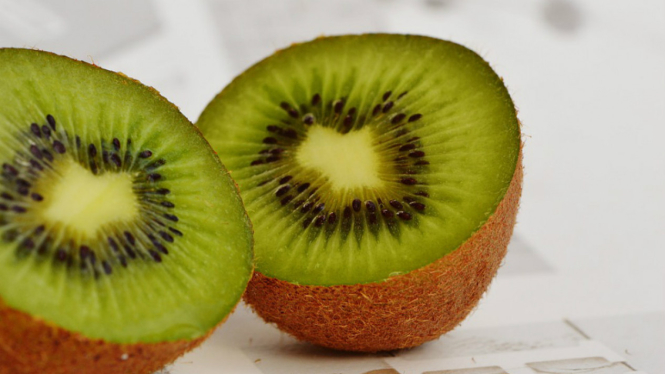VIVA – Sleep A good night’s sleep is very important to your overall health. Because sleeping well can reduce your risk of certain chronic diseases, keep your brain healthy, and boost your immune system.
In general, it’s recommended that you get between 7 hours and 9 hours of uninterrupted sleep each night, although many people struggle to get enough sleep.
There are many strategies that can be used to improve sleep quality, including making changes to your diet, as some foods and drinks have sleep-enhancing properties.
Also read: Study: Hair Dye Increases Cancer Risk in Women
Here are five of the best foods and drinks that you can consume before bed to improve sleep quality Healtline.
Almond nut
Nuts almond is a type of tree nut that has many health benefits. Almonds are an excellent source of the nutrient, as 1 ounce (28 grams) of dry roasted nuts contains 18 percent of an adult’s daily requirement for phosphorus and 23 percent for riboflavin.
One ounce also provides 25 percent of the daily manganese requirement for men and 31 percent of the daily manganese requirement for women. Eating almonds regularly has been linked to a lower risk of several chronic diseases, such as diabetes type 2 and heart disease. It is associated with healthy monounsaturated fats, fiber, and antioxidants.
Antioxidants can protect your cells from the harmful inflammation that can lead to this chronic disease. Almonds can also help improve sleep quality. This is because almonds, along with several other types of nuts, are a source of the hormone melatonin. Melatonin regulates your internal clock and signals your body to prepare for sleep.
Also read: Pandan leaves can treat gout and diabetes, this is a recipe from an expert
Almonds are also a source magnesium which is excellent, providing 19 percent of your daily needs in just 1 ounce. Consuming adequate amounts of magnesium can help improve sleep quality, especially for those who have insomnia.
Magnesium’s role in promoting sleep is thought to be related to its ability to reduce it inflammation. Additionally, it can help reduce levels of the stress hormone cortisol, which is known to disrupt sleep.
However, despite this, research on almonds and sleep is rare. One study examined the effects of feeding mice 400 milligrams (mg) of almond extract. It found that the mice slept longer and were more restful than they did without consuming almond extract.
The potential sleep-related effects of almonds are promising, but more extensive human studies are needed. If you want to eat almonds before bed to determine if they are affecting the quality of your sleep, a 1 ounce (28 gram) serving, or about a handful, will suffice.
Also read: Want the ideal body? Try the Lime Recipe for Shaving Fat
Teh chamomile
Teh Chamomile is a popular herbal tea that may offer a variety of health benefits. Chamomile tea is also famous for its flavones. Flavones are a class of antioxidants that reduce inflammation that often leads to chronic diseases, such as cancer and heart disease.
There is also some evidence that drinking chamomile tea can boost your immune system, reduce anxiety and depression, and improve skin health. Additionally, chamomile tea has several unique properties that can improve sleep quality.
Specifically, chamomile tea contains apigenin. These antioxidants bind to certain receptors in your brain that can increase drowsiness and reduce insomnia.
One 2011 study in 34 adults found those who took 270 mg of chamomile extract twice daily for 28 days fell asleep 15 minutes faster and experienced fewer nighttime wakes compared to those who didn’t take the extract.
Another study found that women who drank chamomile tea for 2 weeks reported better sleep quality compared to nondrinkers.
Those who drank chamomile tea also had fewer depressive symptoms, which are usually associated with sleep problems (28Trusted Source). Drinking chamomile tea before bed is definitely worth trying if you want to improve the quality of your sleep.
Kiwi
Kiwi is a fruit that is low in calories and very nutritious. One fruit contains only 42 calories and a large number of nutrients, including 71 percent of the DV for vitamin C. This fruit provides men and women with 23 percent and 31 percent of the vitamin K they need each day.
It contains decent amounts of folate and potassium as well as several minerals as well. Additionally, eating kiwi can benefit your digestive health, reduce inflammation, and lower your cholesterol.
This effect is due to the high amount of fiber and carotenoid antioxidants they provide. According to research on its potential to improve sleep quality, kiwi can also be one of the best foods to eat before bed.
In a 4-week study, 24 adults consumed two kiwifruit one hour before bedtime each night. At the end of the study, participants fell asleep 42 percent faster than when they did not eat anything before bed.
In addition, their ability to sleep through the night without waking up increased by 5 percent while their total sleep time increased by 13 percent. The sleep-enhancing effects of kiwi are sometimes linked to serotonin. Serotonin is a brain chemical that helps regulate your sleep cycle.
It has also been suggested that the anti-inflammatory antioxidants in kiwi, such as vitamin C and carotenoids, may be partly responsible for its sleep enhancing effects. More scientific evidence is needed to determine the effect of kiwi in improving sleep quality. However, eating 1–2 medium sized kiwi before bed can help you fall asleep faster and fall asleep longer.
Walnuts
Nuts walnuts are a popular type of tree nut. They’re rich in many nutrients, providing more than 19 vitamins and minerals, in addition to 1.9 grams of fiber, in a 1-ounce (28-gram) serving. Walnuts are very rich in magnesium, phosphorus, manganese and copper.
Additionally, walnuts are a great source of healthy fats, including omega-3 fatty acids and linoleic acid. They also provide 4.3 grams of protein per ounce, which may be helpful for reducing appetite.
Walnuts can also improve heart health. They have been studied for their ability to reduce high cholesterol levels, which is a major risk factor for j diseaseantung.
What’s more, some researchers claim that eating walnuts improves sleep, as they are one of the best food sources of melatonin.
The fatty acid content in walnuts can also make you sleep better. They provide alpha-linolenic acid (ALA), an omega-3 fatty acid that is converted into DHA in the body. DHA can increase serotonin production.
There is not much evidence to support claims about walnuts improving sleep quality. In fact, no studies have specifically focused on their role in inducing sleep.
Regardless, if you have trouble sleeping, eating walnuts before bed can help. About a handful of walnuts is a sufficient portion.
–

